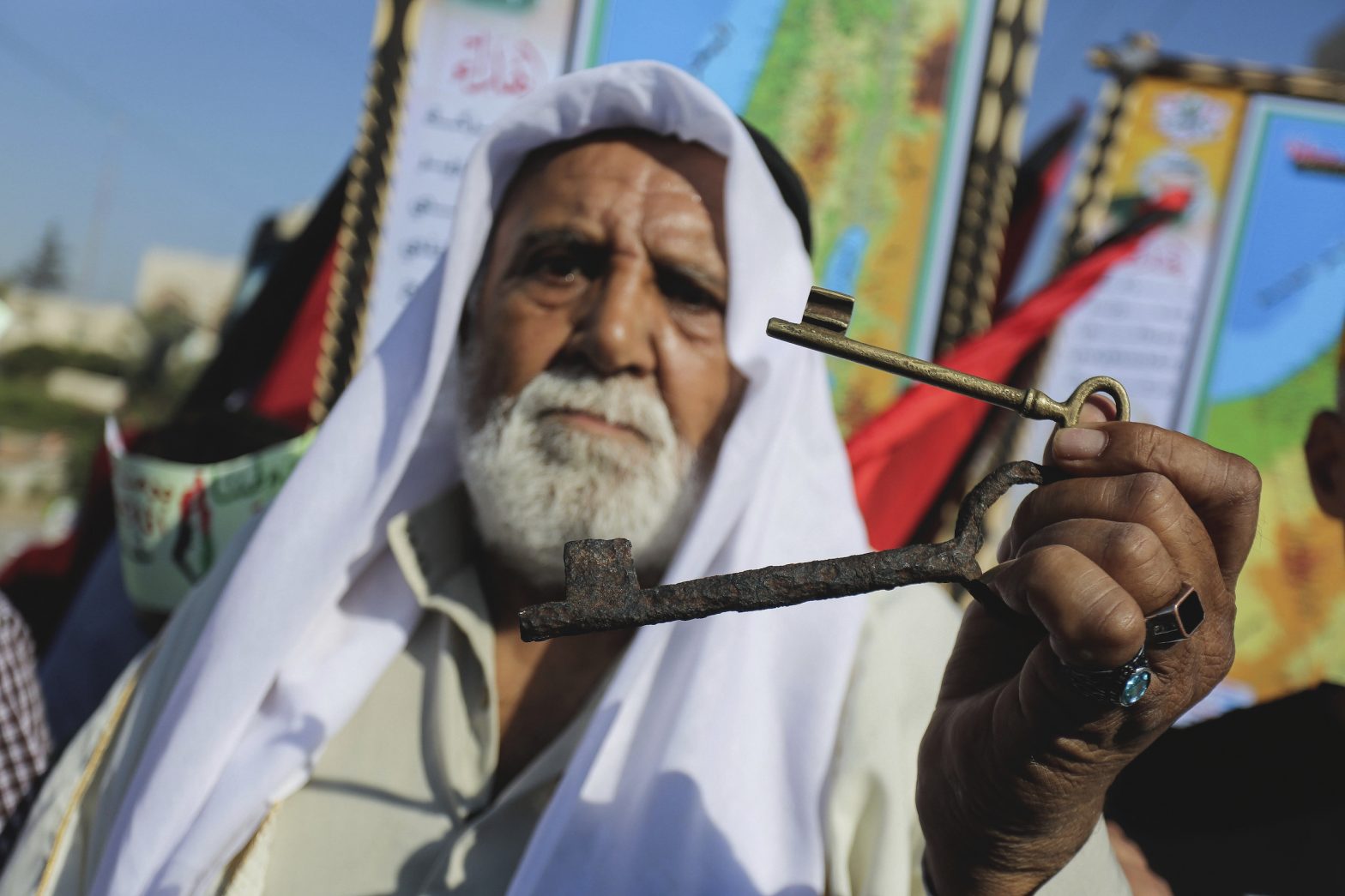Zionism is a nationalist and political movement that emerged in the late 19th century among Jewish communities in Europe, with the central aim of establishing a national homeland for the Jewish people in Palestine. The movement was founded by Theodor Herzl in 1897, following the publication of his book “Der Judenstaat” (The Jewish State), which argued for the creation of a Jewish state as a solution to the widespread persecution of Jews, and the anti-Semitism they faced across Europe.
During the early 20th century, the movement witnessed several key historical events, including the Balfour Declaration of 1917, where Britain declared its backing for creating a “national home for the Jewish people” in Palestine. Britain’s support for the Balfour Declaration was influenced by a combination of strategic interests, Zionist lobbying, complex wartime alliances and conflicting promises. Underlying antisemitic and pro-Zionist sentiments and religious and historical motivations also played a role.
During World War I, securing the Suez Canal and British imperial interests in the Middle East was paramount, and the establishment of a friendly Jewish state in Palestine was seen as beneficial. Prominent Zionists, such as Chaim Weizmann, effectively lobbied British policymakers, arguing that support for Zionism could garner Jewish support in the United States and Russia. Britain’s wartime diplomacy involved making conflicting promises to Arabs and Jews, with the Balfour Declaration attempting to balance these. Pro-Zionist views and the belief in fulfilling biblical prophecy also played a role. With the end of World War I in sight, British post-war strategic planning aimed to reshape the Middle East’s geopolitical landscape, prevent French dominance, and ensure a friendly presence near the Suez Canal. This era saw the establishment of the British Mandate of Palestine after the collapse of the Ottoman Empire post-World War I. The mandate period experienced a rise in Jewish immigration and land purchases in Palestine.
Following World War II, many Jewish survivors resided in Displaced Persons Camps across Europe, often under poor conditions, and sought to emigrate. Western countries, including the United States and Britain, denied Jewish refugees and were hesitant to substantially increase their Jewish immigration quotas due to reasons such as antisemitism, economic concerns and geopolitical situations. However, the British were open to directing these Jewish immigrants to Palestine, where they were welcomed by the Palestinians. As per the Palestine Passport Regulations of 1920, anyone wishing to enter Palestine needed a visa from either the Palestinian government or British consulates. The Immigration Ordinance of August 26th, 1920 empowered the Palestinian government to regulate entry.
Palestinian nationality came into existence or started developing with the post-1917 period. This de facto nationality was formed locally, in line with the domestic law applicable to Palestine and British practices. Concurrently, the inhabitants of Palestine continued to be de jure (according to public international law) Ottoman citizens, albeit in a nominal sense. Article 7 of the Palestine Mandate, which was a unique provision not found in other British mandates, outlined the structure for Palestinian nationality:
“The Administration of Palestine shall be responsible for enacting a nationality law. There shall be included in this law provisions framed so as to facilitate the acquisition of Palestinian citizenship by Jews who take up their permanent residence in Palestine.”
The primary aim of the nationality regulation in this article was to facilitate immigrant Jews as Palestinian citizens. This was a logical extension of the overarching goal of Britain’s Palestine Mandate: establishing a Jewish national home within Palestinian territories.
Subsequently, Israel’s founding generation and its initial leaders entered Palestine on Palestinian visas. David Ben-Gurion, considered the country’s founding father, emigrated from Poland to Palestine. David Green was born in Płońsk, Poland. Like many immigrants to Israel, Green later changed his name to a Hebrew one, David Ben-Gurion, in a process called hebraization of surnames. Many immigrants to Israel have hebraized their names as part of integrating into Israeli society. In 1906, Ben-Gurion landed in Jaffa at Ahuzat Bayit, modern-day Tel Aviv.
Additionally, the citizenship request papers of 20-year-old Szymel Perski, who would later become the Prime Minister of Israel, had a special request: to change his name to Shimon Peres. In his citizenship request, Shimon included declarations in his own handwriting that he was employed in agriculture at a Jewish settlement, and the request to change his first name to Shimon came with the explanation that “Szymel is a corrupted Polish version of the name Shimon.” The request was stamped in October 1943 in the British Mandate of Palestine.
Over the years, there have been various grassroots initiatives, such as petitions and debates, urging the UK government and Parliament to formally apologize to Palestinians and take a leading role in peace initiatives. In 1923, Britain expressed “regrets for their aloofness” for ignoring Palestinian Arabs while continuing its mandate. On the centennial of the Balfour Declaration in 2017, a petition with over 13,500 signatures called for the UK Government to issue a public apology to Palestinians, citing that Britain’s colonial policy led to “mass displacement” and injustice. In 2021, more than a century after supporting the Balfour Declaration, The Guardian expressed regret for its initial endorsement. The newspaper included this stance in an editorial, listing the “worst errors of judgment” the British daily has made since its founding in 1821.
The effects of the Holocaust during World War II, which led to the extermination of six million Jews, added an urgency to the Zionist cause. The world’s failure to prevent this genocide underscored the necessity of a Jewish homeland. Some modern critics say that Zionists and Israel use arguments relating to the Holocaust as a tactic to keep Germany, Europe and the West locked into a state of eternal debt, and swiftly deeming anyone who criticizes the state of Israel an antisemite.
On May 14, 1948, David Ben-Gurion proclaimed the independence of Israel, which was immediately met with war, as Arab countries invaded the new settler colonial state. Weeks before, underground Zionist militia groups — the Stern Gang and Irgun — orchestrated a massacre that was key to terrorizing Palestinian Arabs to leave their villages. Terrorism continued to be the modus operandi of settler Zionists.
The Deir Yassin massacre was one of the many massacres that paved the way for the establishment of the state of Israel by repeatedly attacking Arab Palestinians and British personnel. They believed that by getting rid of British patronage, Zionists would become the sovereign masters of the country. These groups called themselves “Lohamei Herut Israel Lehi,” or fighters for the freedom of Israel. They ripped through Palestinian villages, causing a bloodbath among its inhabitants and forcing the survivors to leave. It is estimated that around 15,000 Palestinians lost their lives, and several hundred thousand were displaced, seeking refuge in different parts of Palestine or nearby countries. Palestinians refer to this tragic event as the Nakba, meaning “the catastrophe.”
Thus, on burnt Palestinian villages, the new State of Israel was formed.
The Deir Yassin massacre and the subsequent exodus of Palestinians in terror played a significant role in persuading the initially hesitant leaders of neighboring Arab nations to engage in military action following the declaration of the state of Israel, thereby initiating a sequence of regional conflict. The establishment of Israel marked a significant triumph for the Zionist movement but also set the stage for the ongoing Israeli-Arab conflict, including the deeply rooted Israeli-Palestinian conflict.
Since its establishment in 1948, Israel has been involved in several conflicts which have resulted in changes in its territorial boundaries. Upon the declaration of the state of Israel in 1948, neighboring Arab states invaded. The war resulted in Israel expanding its territory beyond the UN Partition Plan for Palestine. Many Palestinians fled or were expelled from these areas, leading to a significant refugee issue. In 1967, the Six-Day War took place. This war had a profound impact on Israeli and Palestinian territories. Israel captured the Gaza Strip and the Sinai Peninsula from Egypt, the West Bank (including East Jerusalem) from Jordan, and the Golan Heights from Syria. This marked the beginning of the Israeli occupation of Palestinian territories, which continues to be a core issue in the Israeli-Palestinian conflict.
In the 2000s and onwards, the Second Uprising (“Intifada”) and subsequent conflicts took place. The Second Intifada from 2000 to 2005, and subsequent Gaza conflicts from 2008-2009, 2012, 2014, etc. have seen further entrenchment of territorial disputes. Israeli settlements in the West Bank have continued to expand, which are considered illegal under international law.
Since its founding, Israel has experienced an influx of immigration from Jewish communities from around the world. The Zionist movement continues to encourage Jewish immigration to Israel (Aliyah) and maintains strong connections with the Jewish diaspora worldwide. Israel’s Law of Return, enacted in 1950, allows Jews to immigrate to Israel and grants them immediate citizenship upon arrival. However, Under the Absentees’ Property Law of 1950, Palestinian refugees who were displaced following Nov. 29, 1947, are classified as “absentees” and are not entitled to any rights, let alone allowed to return to their homelands. Their properties, including land, homes, apartments and bank accounts (both movable and immovable assets), are seized by the state. Because of this, Palestinians are the largest stateless community in the world.
The Zionist movement, while achieving its goal of establishing a Jewish homeland, has sparked regional unrest and severe humanitarian concerns for the last 75 years. The future remains dark and escalation is bound to increase and worsen.
The concept of a “Greater Israel,” according to the founding father of Zionism Theodore Herzl, is a Jewish State stretching “from the Brook of Egypt to the Euphrates” and includes historic Palestine as well as other parts of Arab-majority countries. Some Zionists even believe that Greater Israel should span from the Nile in the West to the Euphrates in the East, covering areas such as Palestine, Lebanon, Western Syria and Southern Turkey. Some historians and observers of international relations suggest that this is the reason behind Israel’s gradual expansion into neighboring territories, particularly Palestine. However, it is noteworthy that the concept of Greater Israel is not exclusively a Zionist endeavor. Recent discussions among some scholarly circles speculate on its potential role in U.S. foreign policy, aiming to expand U.S. hegemony in the Middle East and potentially leading to the region’s fragmentation and fracture.
Zionism as a movement gained momentum in the early 20th century, leading to the establishment of Jewish communities in Palestine, then under Ottoman and later British control. The Balfour Declaration of 1917, a statement by the British government, supported the establishment of a “national home for the Jewish people” in Palestine, further legitimizing the Zionist movement.
Zionism has evolved over time and has faced various challenges and controversies, including opposition from some Jewish communities and conflict with the Arab population of Palestine.
However, Zionism has been central to the founding of Israel. It has provided the ideological and practical framework necessary for the Jewish people to establish a national homeland in Palestine. The movement’s determination directly led to the establishment of the State of Israel in 1948. However, the creation of Israel also precipitated a profound and lasting impact on Israeli-Palestinian relations, laying the groundwork for a conflict that persists to this day. The displacement of hundreds of thousands of Palestinians during the Nakba and the subsequent occupation of Palestinian territories by Israel has been central to the enduring strife between the two peoples.
Zionism’s legacy is thus twofold: it achieved its goal of establishing a Jewish state but also contributed to a deep-seated conflict characterized by territorial disputes, political tensions and cycles of violence from both sides. The Israeli-Palestinian conflict remains one of the most complex and challenging issues in international relations, with Zionism’s historical role continuing to influence perceptions, policies and peace efforts in the region.
The views expressed in opinion pieces do not represent the views of Glimpse from the Globe or its editorial team.






